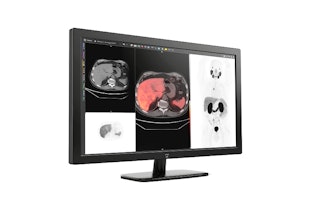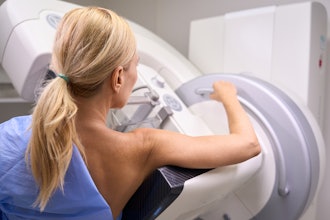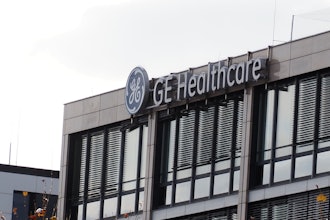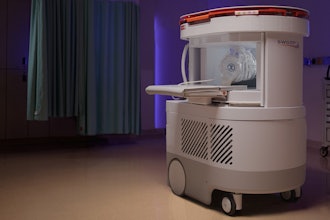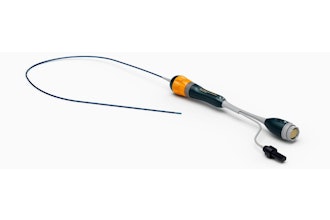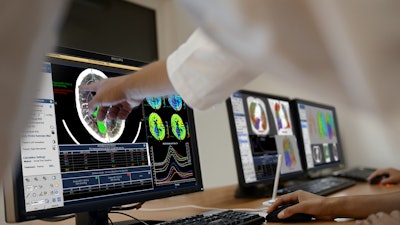
Royal Philips is highlighting its latest diagnostic and pathway informatics portfolio featuring end-to-end solutions to enable earlier and more definitive diagnosis. With simple and more efficient connected workflows, Philips’ solutions help reduce variability and staff workload, increase productivity, and enhance the patient and physician experience.
“At this year’s RSNA, Philips will showcase how our informatics solutions use intelligence to provide patient-centric insights, integrate advanced visualization tools into the workflow and support clinical collaboration to speed up the detection of diseases by leveraging intelligence everywhere along the patient care journey,” said Reema Poddar, General Manager, Diagnostic and Pathway Informatics at Philips. “We are uniquely positioned to apply new, optimized algorithms to massive data sets to provide prescriptive analytics to our customers, helping them improve both clinical and operational efficiencies within their organizations.”
New Advanced Visualization Workspace powered by AI
At RSNA, Philips will introduce its next-generation Advanced Visualization Workspace platform with AI-enabled algorithms and workflows. This latest innovation is vendor-neutral, providing a single, advanced platform for multiple modalities across cardiology, oncology, neurology, and radiology with a comprehensive suite of advanced visualization solutions to support care teams, and tailored to fit the needs of any hospital network, from a single workstation to an enterprise solution.Philips Advanced Visualization Workspace now includes more than 70 clinical applications for clinical insights, designed to support workflow and diagnostic confidence as well as automated processing for multiple clinical domains across the continuum of care.
New applications include the MR cardiac suite, an all-in-one environment for cardiac MR, providing one overview for all imaging data types to support diagnosis and report creation.The new AI-powered CT ASPECT (Alberta Stroke Program Early CT Score) scoring feature indicates early signs of brain infarction on non-contrast CT scans for the management of ischemic stroke patients. The application automatically identifies ASPECTS regions of the brain via AI and generates an ASPECT score sent directly to the PACS (Picture Archiving and Communication System). New features also include enhanced CT Liver Analysis, with tools to analyze and quantify the whole liver, liver segments, and user-defined regions of interest.
Integrated radiology workflow solutions improve clinical and operational efficiencies
Operational inefficiencies continue to challenge hospital systems as they strive to deliver the best care for patients. Optimizing clinical workflows can help eliminate waste and increase efficiency to help improve patient flow and deliver high-quality care. With the patient at the center, Philips takes a systems view of diagnostic imaging with smart user interfaces and workspaces to help improve patient caseload management, image acquisition, results interpretation, communication of findings, clinical collaboration, and follow-up.Visitors to the Philips booth (#6730) at RSNA will experience the expanded Philips Radiology Workflow, a combination of solutions that support clear and efficient radiology workflows.
Designed as vendor-neutral, the solution components are AI-enabled and can be implemented in any radiology department to assist customers by automating or accelerating routine and repetitive tasks and help to generate insights from large amounts of data.In addition to the latest Advanced Visualization Workspace, at RSNA, Philips will debut the new Radiology Information System (RIS) natively integrated into Philips Image Management Vue PACS. This new administrative and clinical workflow management solution allows the entire radiology department and ancillary users to enter, store, view, manage and transfer patient information with a quick and easy-to-use web solution.
The newest release of RIS also expands patient-oriented functionalities, allowing patients to self-schedule their exams from the web, while the patient kiosk application gives patients the opportunity to check in when they arrive at their healthcare facility.Philips will also demonstrate how it combines the power of AI with deep clinical knowledge to create solutions that integrate into the workflows of healthcare providers and people’s daily health routines. Philips’ AI-enabled PACS provides automatic analysis of medical data and extraction of relevant information to generate meaningful – and actionable – insights that enable more precise and personalized patient care. It also allows access to a large portfolio of validated third-party AI algorithms that integrate seamlessly into the existing radiology workflow.









